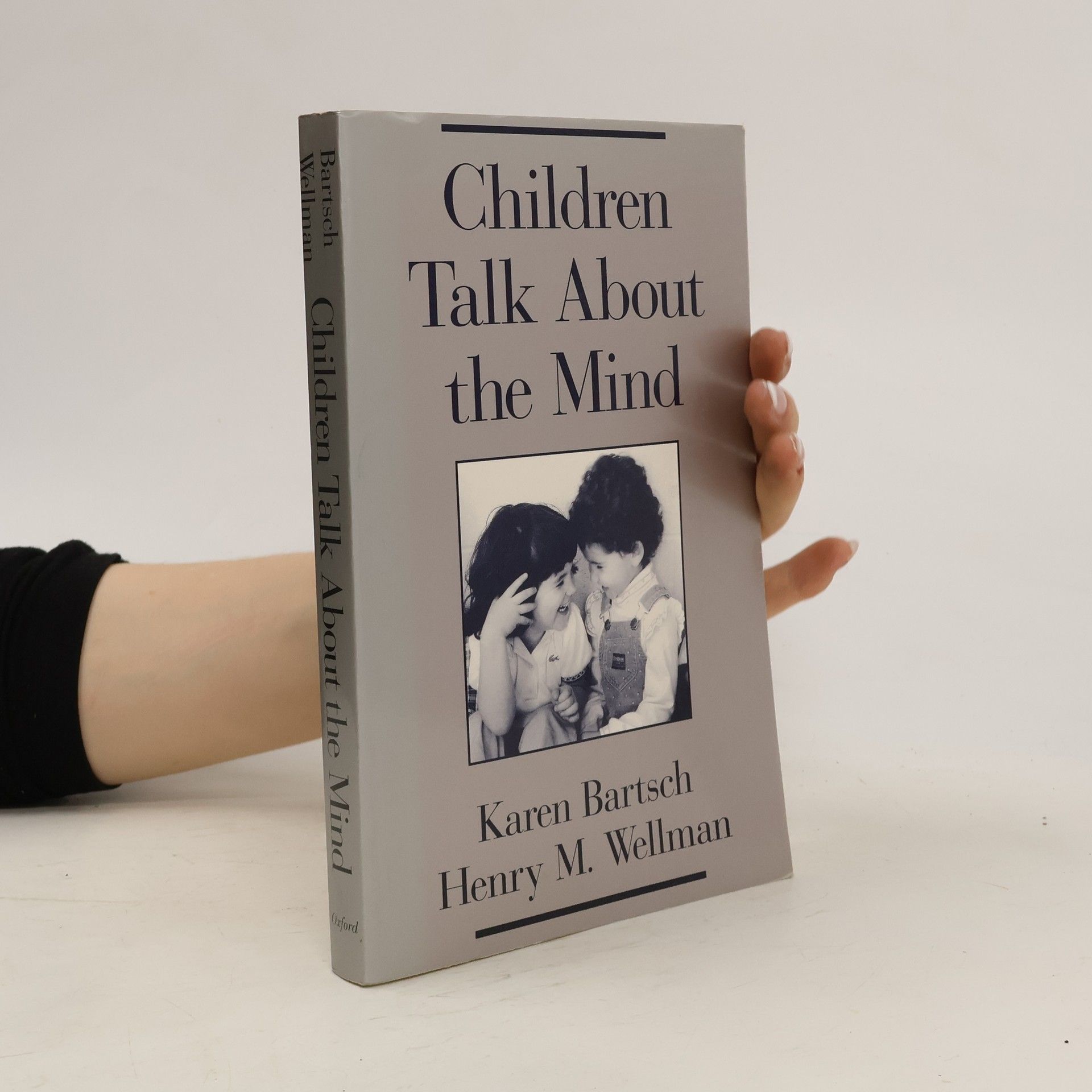What, exactly, do children understand about the mind? And when does that understanding first emerge? In this groundbreaking book, Karen Bartsch and Henry Wellman answer these questions and much more by taking a probing look at what children themselves have to tell us about their evolving conceptions of people and their mental lives. By examining more than 200,000 everyday conversations (sampled from ten children between the ages of two and five years), the authors advance a comprehensive "naive theory of mind" that incorporates both early desire and belief-desire theories to trace childhood development through its several stages. Throughout, the book offers a splendidly written account of extensive original findings and critical new insights that will be eagerly read by students and researchers in developmental psychology, cognitive psychology, philosophy, and psycholinguistics.
Wellman Henry M. Knihy


Odczytać umysł
- 240 stránek
- 9 hodin čtení
Skąd wiemy, co czują inni ludzie, jakie są ich nadzieje, obawy, pragnienia, myśli i plany? Profesor Henry M. Wellman pokazuje, że wszyscy potrafimy czytać w umysłach innych osób. Co więcej, uczymy się tej niezwykłej sztuki niemal od narodzin! Henry M. Wellman, psycholog i badacz rozwoju dziecka, w swojej błyskotliwej książce przybliża czytelnikom teorię umysłu, która potrafi wyjaśnić m.in.: – jak rozwijamy nasze umiejętności życia w społeczeństwie, – dlaczego niektórzy z nas zostają ateistami, a inni są religijni, – jak to się dzieje, że jedni kochają horrory, a drudzy ich nie znoszą, – oraz do czego przyda nam się ta wiedza, kiedy to roboty będą nas uczyć, leczyć i się nami opiekować. Jeśli chcemy odnaleźć porządek i przewidywalność w z pozoru chaotycznych ludzkich interakcjach, a przede wszystkim lepiej zrozumieć siebie i innych - ta książka nam w tym pomoże.